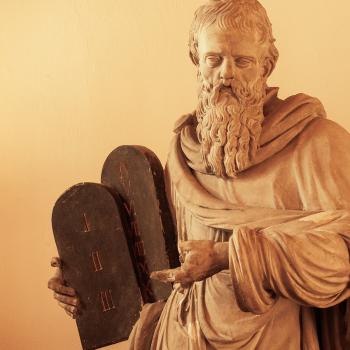Ramana Maharshi, a Hindu mystic, had the following exchange with a student: “Q: How are we to treat others? A: There are no others.”
The Golden Rule is the principle of treating others as we would want to be treated. The Golden Rule is common to almost all traditions, including Bahai, Buddhism, Christianity, Confucianism, Hinduism, Humanism, Islam, Jainism, Judaism, Scientology, Sikhism, Taoism, Wicca, Yoruba, and Zoroastrianism, among others.
In its weak form, the Golden Rule suggests that we treat others as we were treated, regardless of any differences in our circumstances. And, in its strong form, the Golden Rule suggests that we treat others as we would want to be treated, if we were in their circumstances.
The Way suggests that “everyone is related, and everything is connected.” Clearly, we answer to different names and occupy unique places in space and time. Still, are we truly living separate lives or we all living one life, amazingly diverse, yet profoundly united?
Maybe we are NOT separate individuals, seeking personal gain, personal responsibility, and personal salvation. Perhaps, we are interconnected, meant to seek the greater good. Perhaps, our responsibility is meant to extend beyond our selves, our families and friends or our communities and countries.
Maybe our concern is meant to extend beyond individual salvation to universal salvation. In the Buddhist tradition, Mahayana Buddhists recognize bodhisattvas, who seek enlightenment for all, even delaying nirvana until all beings can attain nirvana. Perhaps, nirvana or salvation is found in the here and now, not in some imagined afterlife.

Othering
Recently, a podcaster asked me about “othering,” categorizing people according to perceived differences and identifying certain groups as inferior to others. Othering is “us versus them” thinking.
In The Way, I describe my years spent in service. So, if we live in the same neighborhood, pick up our kids at the same schools, shop in the same stores, and worship in the same churches, then we constantly see the same people. They probably act like us, look like us, and think like us.
Thus, we assume that there is something good or normative or reasonable about us; not so much about them. We judge ourselves (us) by our intentions; we judge others (them) by their actions.
But, when we serve a wider community, then we see a wide variety of people who are all ages, races, and sexual orientations. They may not act like us, look like us, or think like us. In fact, the more different people we meet, the more we realize we are all connected, and we are all related.
Whether we are rich has as much to do with chance and circumstance as with choice and character. So, was I “rich” because I worked harder or had better luck? Yes, and yes. Some poor folks underestimate the importance of effort; some rich folks underestimate the importance of luck.
Truly, we would never ban Muslims, build walls, marginalize LBGTQ+ people, or separate families, if we treated others as we would want to be treated if we were in their circumstances. Candidly, if we would NOT do any of these things to our families or friends, then why would we do them to strangers??
Both Sides Now
When I was among the one percent, I used to think that there were makers and takers, that the makers (us) worked and paid taxes, while the takers (them) loafed and took benefits. Then, I met an undocumented immigrant working three part-time jobs with no benefits, and a working mother choosing between paying rent or paying insurance.













